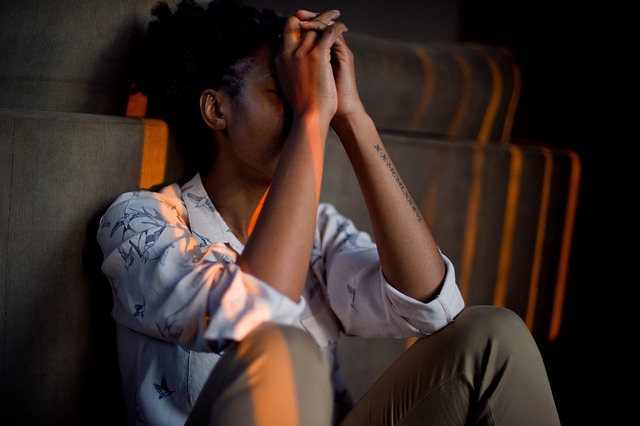We’ve all asked ourselves at some point, “Why do bad things happen to good people??” Especially when life’s storm hits someone we deem undeserving. From the silent heartbreaks behind closed doors to the grand tragedies in the public light, the age-old question of suffering has been a companion of humanity throughout the ages. On this page, I’ll share with you a brief history, beliefs, and personal tales to understand this complex conundrum.
In fact, the ancient civilizations were no strangers to this dilemma. The Greeks often sought answers in the tales of their gods, while Eastern philosophies found solace in the balance of life. Renowned thinkers like Plato wrestled with justice and pain, Epicurus pondered the role of deities, and Confucius deliberated on the nature of goodness.
Let’s take a look at some religious interpretations of why bad things happen to good people:
Christian Perspective:
If you’ve ever walked into a church, or casually thumbed through a Bible during a quiet moment, you’ll find stories drenched in trials and tribulations. There’s Job, a man of unwavering faith, who loses everything. There’s Christ our Lord and Savor, the embodiment of innocence, who endures the cross. Such tales evoke profound reflections. They hint that suffering, though painful, refines faith much like fire refines gold.
Then there’s the concept of free will. It’s a gift, but it’s also a responsibility, and its profundity lies in the choices we make — for love, for good, even in the face of adversity. And through it all, there’s a belief that God, in His infinite wisdom, moves in ways we may not always grasp but are always for a purpose larger than our individual experiences.
Buddhist Perspective:
Ever sat under a tree, lost in thought, much like Prince Siddhartha did over two millennia ago? That silent contemplation led him to become Buddha, and in his enlightenment, he realized the inherent suffering of life. But it wasn’t a message of despair. Instead, it was a wake-up call. Yes, life has its aches, its losses, its moments of heartbreak. But through these, we can journey towards enlightenment. This path teaches us detachment, not from love, but from the chains of desires that often lead to pain. And through it all, there’s the heartbeat of compassion — for oneself and for the world.
Islamic Perspective:
If you’ve ever heard the mellifluous call to prayer or watched the devout kneel in unison, you’ll sense a profound surrender to the divine. In Islam, life’s twists and turns, its joys and sorrows, are seen through the lens of divine wisdom. Hardships? They’re tests, not punishments. They’re moments that measure and mold one’s faith. Then there’s the concept of Qadr or destiny. It’s the belief that everything, from a leaf’s fall to a storm’s rage, happens by divine decree. But it’s not a doctrine of passive acceptance; it’s a call to trust in a wisdom greater than human understanding.
Hindu Perspective:
Ever watched the rhythmic dance of a flame during a temple aarti or felt the beat of drums during a festival? Hinduism, with its myriad of gods and tales, echoes the principle of karma. It’s a dance of cause and effect. Every thought and every action sets off a ripple in the universe. But there’s more. There’s the soul’s journey — spanning across lives, across ages, seeking lessons, experiences, and ultimately, liberation from the cycle of birth and rebirth. It’s a quest for moksha, where the soul finds its eternal essence.
In each faith, there’s a tapestry woven with threads of suffering, meaning, and hope. They offer not just answers, but also perspectives — lenses through which we might see our trials in a new light.
Modern Psychological Insights:
Life isn’t always fair – a statement psychologists see echoed in those grappling with unexpected adversities. Cognitive dissonance speaks to our struggle when reality clashes with our need for a just world. And sometimes, it’s simply the randomness of life, that shatters our illusion of control. Yet, in the dark, there’s light: the incredible human capacity for post-traumatic growth, where pain paves the path for newfound strength and wisdom.
The Nature of Good and Bad:
Have you ever found yourself pondering over a choice, wrestling with what’s “right” or “wrong”? Such reflections aren’t just about morality, they speak to our deeply ingrained notions of “good” and “bad”. These notions, however, aren’t etched in stone. They shift like sand under the influence of personal experiences, cultural backdrops, and societal norms.
Take food for example: a dish that’s a delicacy in one culture might be off-putting in another. It’s all about perspective. Evolution, in its wisdom, used pain not as punishment but as a signal – a nudge to shift, adapt, or evolve. And speaking of balance, imagine the symbol of Yin and Yang – the harmony of opposites. Life, in all its unpredictable beauty, seems to dance in this duality. It’s an eternal waltz of day and night, joy and despair, love and loss.
Coping Mechanisms:
When life’s storms rage, how do we keep our ship steady? The first anchor, albeit a heavy one, is acceptance. It’s that deep breath we take as we acknowledge the tempest, knowing it won’t last forever. And as we battle our inner demons, the insights of Viktor Frankl, who found light even in the dark corners of a concentration camp, become a beacon.
He taught us that even in suffering, we can find purpose. It’s called logotherapy – a quest for meaning even in the most harrowing of circumstances. But remember, no one’s expecting you to tread these treacherous paths alone. The strength of a community, the kindness of strangers, the embrace of loved ones – they act as lifebuoys, keeping us afloat when the currents threaten to pull us under.
Personal Stories:
Let me take you on a journey through Maya’s life. A vibrant spirit, she was the embodiment of giving and kindness. But life, in its unpredictable rhythm, dealt her a hand heavy with losses. Nights spent staring at the ceiling, she’d often wonder, “Why me?” But as days turned to years, her perspective transformed. The very pain that once weighed her down seemed to deepen her, carve caverns of empathy and resilience into her being. “Why not me?” she’d muse, realizing that her struggles didn’t isolate her but connected her to countless others. Maya’s tale, echoing with laughter, tears, and undying spirit, serves as a testament to our collective human resilience. It’s a reminder that every tear drop, every scar, often has a story of triumph hiding just behind it.
Conclusion:
The query, “Why do bad things happen to good people?” doesn’t have a one-size-fits-all answer. It’s multi-faceted, deeply personal, and often a lifelong exploration. Perhaps it’s less about finding a definitive answer and more about how we evolve, learn, and grow from the quest itself. Your story, and your insights matter. Have you grappled with this question? Found answers, or perhaps more questions? Share with us. Let’s weave a tapestry of shared human experiences, finding solace in collective wisdom.




